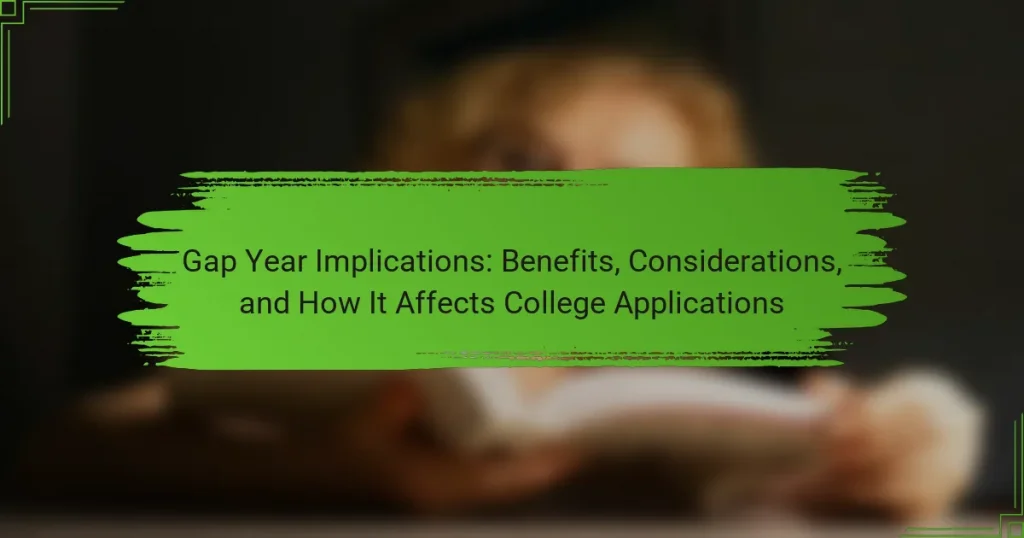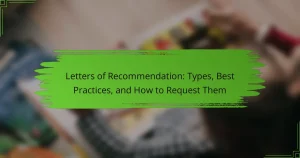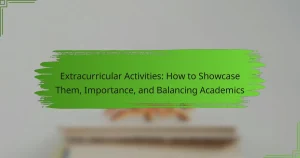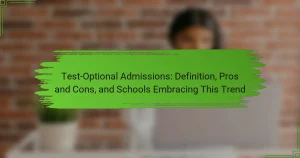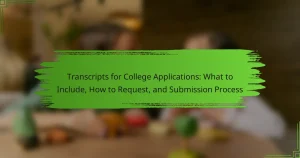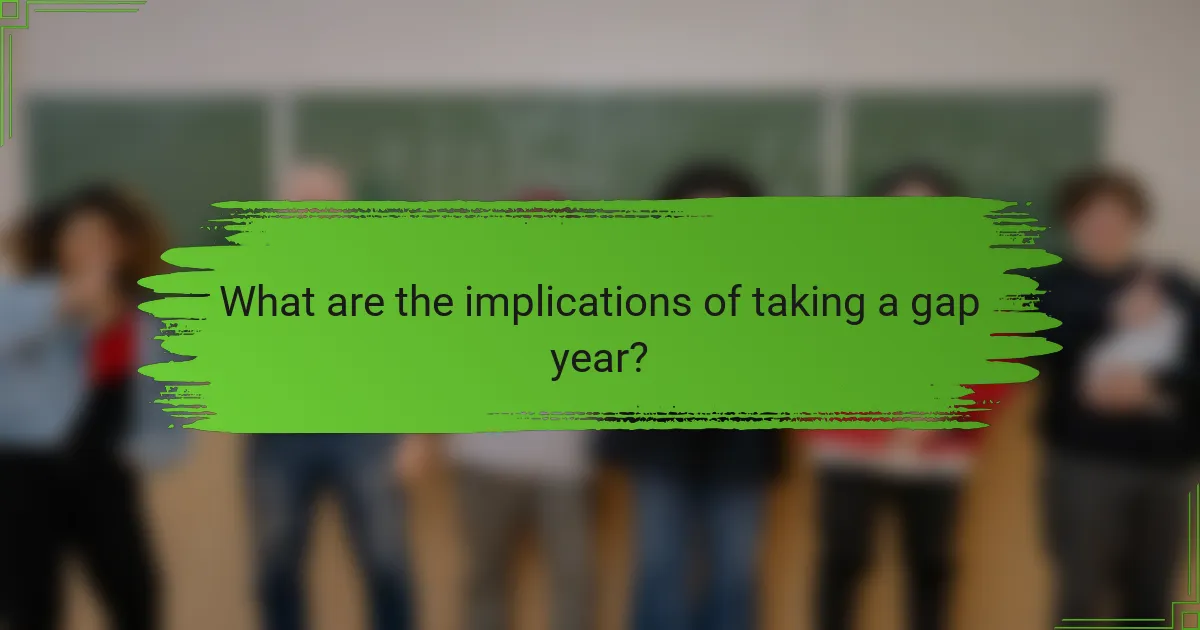
What are the implications of taking a gap year?
Taking a gap year can have several implications for students. It often leads to personal growth and increased maturity. Students may gain valuable life experiences that enhance their perspectives. This time can also provide opportunities for travel, volunteering, or work experience.
Additionally, taking a gap year can impact college applications. Some institutions view it positively, recognizing the benefits of real-world experience. However, it may also delay academic progress for some students. Research indicates that around 90% of students who take a gap year return to college.
This suggests that a gap year does not necessarily hinder academic goals. Instead, it can enrich a student’s educational journey.
How does a gap year impact personal development?
A gap year positively impacts personal development by fostering independence and self-discovery. During this time, individuals often engage in travel, volunteer work, or internships. These experiences enhance problem-solving skills and adaptability. Research shows that 90% of gap year students report increased confidence. Additionally, they often develop a clearer sense of career goals. The National Center for Education Statistics indicates that students who take a gap year tend to have better academic performance afterward. Overall, a gap year serves as a transformative period that contributes significantly to personal growth.
What skills can be gained during a gap year?
A gap year can help individuals gain various skills. Common skills include independence, as students learn to manage their own schedules and finances. Communication skills improve through interactions with diverse groups of people. Problem-solving abilities are enhanced by navigating new environments and challenges. Time management skills develop as individuals balance work, travel, or volunteering. Cultural awareness increases through exposure to different cultures and perspectives. Leadership skills can be fostered through group activities or projects. Adaptability is strengthened by adjusting to new situations and experiences. These skills are valuable in both personal and professional contexts.
How does a gap year influence self-awareness?
A gap year significantly influences self-awareness by providing individuals with unique experiences and challenges. During this time, individuals often engage in travel, work, or volunteer opportunities. These experiences encourage reflection on personal values, goals, and identity. Research indicates that students who take a gap year report higher levels of self-confidence and maturity. A study by the American Gap Association found that 90% of gap year participants felt more prepared for college after their experiences. This preparation stems from enhanced decision-making skills and a clearer sense of purpose. Engaging with diverse cultures also broadens perspectives, fostering greater empathy and understanding. Overall, a gap year facilitates personal growth and introspection, leading to increased self-awareness.
What are the benefits of taking a gap year?
Taking a gap year offers numerous benefits. One major advantage is personal growth. Students often gain independence and maturity during this time. Another benefit is the opportunity to travel. Traveling can enhance cultural awareness and global perspective. A gap year can also provide practical experience. Internships or volunteer work can develop skills relevant to future careers. Additionally, it allows for academic exploration. Students can discover new interests before committing to a college major. Research indicates that students who take gap years often perform better academically in college. According to a study by the American Gap Association, 90% of students reported increased maturity after their gap year. These benefits contribute to a more well-rounded educational experience.
How can a gap year enhance academic performance?
A gap year can enhance academic performance by providing students with real-world experiences that foster personal growth. Engaging in travel, work, or volunteer activities during a gap year can improve critical thinking and problem-solving skills. These experiences often lead to increased motivation and focus when students return to their studies. Research shows that students who take a gap year often perform better academically in college. A study by the American Gap Association found that 90% of students reported increased maturity and self-confidence after their gap year. This personal development translates into better time management and study habits. Ultimately, a gap year can lead to a more enriched academic experience.
What experiences can a gap year provide that are valuable for future careers?
A gap year can provide valuable experiences that enhance future careers. These experiences often include practical work skills through internships or volunteer opportunities. Individuals may develop soft skills such as communication, teamwork, and problem-solving. Cultural immersion during travel can foster adaptability and global awareness. Networking opportunities arise from meeting diverse individuals in various settings. Enhanced self-awareness and personal growth can lead to clearer career goals. Research indicates that gap year participants often report higher job satisfaction later in life. According to a study by the American Gap Association, 90% of gap year alumni believe their experiences positively impacted their career paths.
What considerations should be made before deciding on a gap year?
Considerations before deciding on a gap year include financial implications, personal goals, and academic impact. Funding a gap year can be costly, requiring budgeting for travel, living expenses, and activities. Personal goals should align with the experiences planned during the gap year. This may include travel, internships, or volunteering. Evaluating how a gap year affects college applications is crucial. Some institutions view it positively, while others may raise concerns about academic readiness. Research shows that 90% of students who took a gap year reported increased maturity and focus upon returning to education. Understanding these factors is essential for making an informed decision.
What financial factors should be considered when planning a gap year?
When planning a gap year, several financial factors must be considered. Budgeting for travel costs is essential, as expenses can vary widely by destination. Accommodation costs should also be calculated, including potential long-term rentals. Daily living expenses, such as food and transportation, must be included in the budget. Health insurance is another critical factor, as coverage is necessary during travel. Additionally, participants should consider the opportunity cost of delaying college, which can impact future earnings. Funding sources, such as savings or scholarships, should be explored to support the gap year. Lastly, understanding visa costs and requirements is important for international travel.
How can one ensure a gap year is productive and meaningful?
To ensure a gap year is productive and meaningful, one should set clear goals and create a structured plan. Establishing specific objectives helps focus efforts on desired outcomes. Engaging in activities like volunteering, internships, or travel can provide valuable experiences. Building skills through workshops or courses enhances personal growth. Networking with professionals in desired fields opens opportunities for future careers. Reflecting on experiences regularly aids in personal development and clarity. Research indicates that structured gap years can improve employability and academic performance. A study by the American Gap Association found that 90% of students reported increased confidence after a gap year.
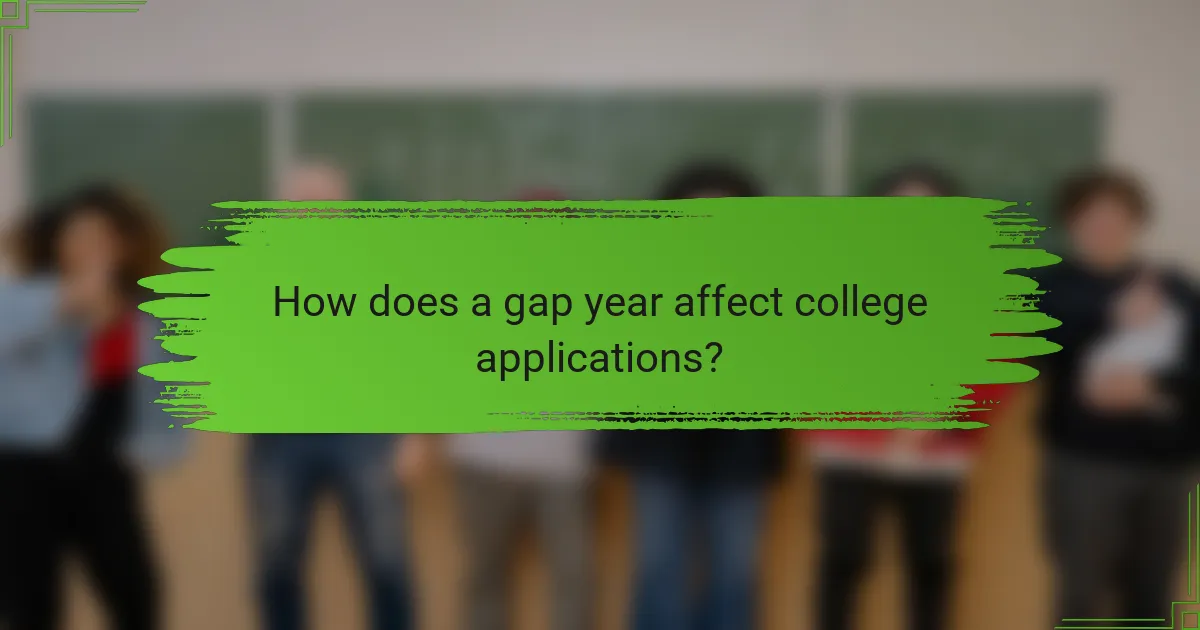
How does a gap year affect college applications?
A gap year can positively affect college applications by demonstrating maturity and real-world experience. Students who take a gap year often engage in meaningful activities such as travel, work, or volunteering. These experiences can enhance personal development and provide unique perspectives. Admissions officers may view these attributes favorably. A study by the American Gap Association found that 90% of students who took a gap year reported feeling more prepared for college. This preparation can lead to stronger applications and improved academic performance once enrolled. Overall, a gap year can be an asset in the college admission process.
What are the perceptions of gap years among college admissions officers?
College admissions officers generally view gap years positively. They believe that gap years can enhance a student’s maturity and readiness for college. Many officers see these experiences as opportunities for personal growth. Students who take gap years often gain valuable skills and perspectives. Admissions officers appreciate the diversity of experiences that gap years provide. Research indicates that students returning from gap years often perform better academically. This is supported by a study from the American Gap Association, which found that 90% of gap year participants reported increased self-confidence. Overall, gap years are perceived as beneficial by many in the admissions community.
How does a gap year influence an applicant’s profile?
A gap year positively influences an applicant’s profile by enhancing personal development and skills. It allows students to gain real-world experience, which can make them more attractive to colleges. Engaging in travel, work, or volunteer opportunities during this time fosters maturity and independence. These experiences can lead to stronger personal statements and interviews. According to a study by the American Gap Association, 90% of gap year students reported increased self-confidence. Additionally, 60% felt more prepared for college after their gap year. This preparation can result in better academic performance in higher education.
What strategies can be employed to present a gap year positively in applications?
Highlight the skills and experiences gained during the gap year. Emphasize personal growth, such as increased independence and maturity. Discuss any volunteer work or internships that demonstrate commitment and initiative. Mention travel experiences that broadened cultural awareness and adaptability. Include specific projects or challenges tackled during the year. Provide examples of how these experiences relate to future academic or career goals. Use positive language to frame the gap year as a valuable opportunity. Research indicates that admissions officers appreciate unique experiences that contribute to a well-rounded applicant.
What are the potential risks of taking a gap year regarding college admissions?
Taking a gap year can pose several risks regarding college admissions. One significant risk is the potential for decreased motivation. Students may find it challenging to return to an academic environment after a year away. Another risk is the possibility of losing academic momentum. This can affect their preparedness for college-level coursework. Additionally, there may be concerns about how colleges perceive the gap year. Some admissions officers might question the student’s commitment to education.
Furthermore, students may miss deadlines for college applications. This can limit their options for enrollment. There is also the risk of not having adequate experiences to enhance their application. If the gap year does not include meaningful activities, it may not strengthen their candidacy. Lastly, financial implications can arise. A gap year can lead to increased costs that may impact the ability to afford college later.
How can a gap year lead to delays in educational progression?
A gap year can lead to delays in educational progression by interrupting the continuity of academic study. This break may result in a loss of study habits and motivation. Students often find it challenging to re-adjust to academic demands after a year away. Additionally, some students may choose to travel or work, which can distract from academic goals. Research indicates that students who take a gap year may face difficulties in transitioning back to school. According to a study by the American Council on Education, 60% of gap year students reported feeling less prepared for college upon their return. This can ultimately extend the time needed to complete a degree.
What challenges might arise in re-entering the academic environment after a gap year?
Re-entering the academic environment after a gap year can present several challenges. Students may experience difficulties in adjusting to academic rigor. They might struggle with time management after a year away from structured learning. There can be a gap in knowledge or skills relevant to their studies. Social reintegration with peers who have continued their education may also be challenging. Additionally, students may face anxiety about meeting academic expectations. Research indicates that returning students often report feelings of isolation or disconnection. These challenges can impact their overall academic performance and experience.
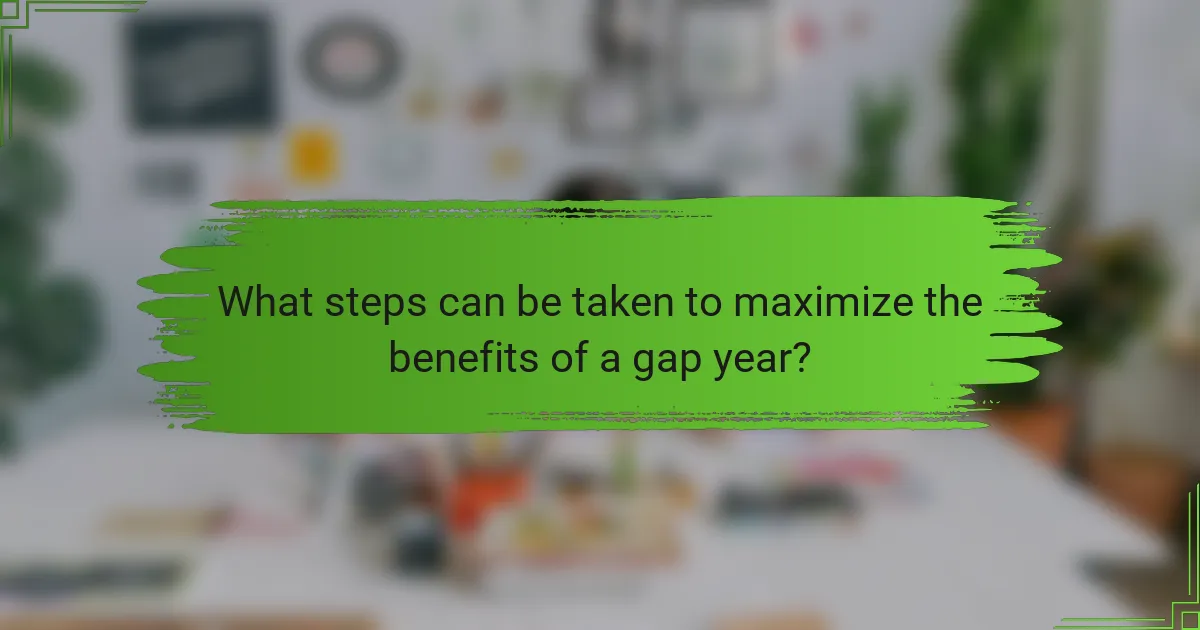
What steps can be taken to maximize the benefits of a gap year?
To maximize the benefits of a gap year, individuals should engage in purposeful planning. Setting clear goals helps define what one hopes to achieve during this time. Researching various opportunities, such as volunteering, internships, or travel, can provide valuable experiences. Budgeting finances ensures that resources are available for planned activities. Networking with others who have taken gap years can offer insights and advice. Reflecting on experiences throughout the year fosters personal growth and learning. Documenting the journey through journaling or blogging can enhance self-awareness. Finally, preparing for the transition back to education or work is crucial for a smooth reintegration.
How should one plan for a successful gap year?
To plan for a successful gap year, one should establish clear goals. These goals may include travel, work experience, or skill development. Researching potential destinations and opportunities is essential for informed decision-making. Creating a budget helps manage finances throughout the year. It is also crucial to develop a timeline for activities and milestones. Networking with others who have taken gap years can provide valuable insights. Additionally, documenting experiences will enhance college applications. According to a study by the American Gap Association, 90% of gap year students reported increased maturity and self-confidence.
What resources are available for gap year planning?
Resources for gap year planning include online platforms, books, and organizations. Websites like Gap Year Association offer comprehensive guides and tips. Books such as “The Gap Year Advantage” provide insights into planning and benefits. Organizations like Rustic Pathways and Global Education Oregon specialize in gap year programs. These resources help students explore options, create itineraries, and connect with alumni. They also offer financial planning tools and scholarship information. Utilizing these resources enhances the gap year experience and supports informed decision-making.
How can goal-setting enhance the gap year experience?
Goal-setting can significantly enhance the gap year experience by providing direction and motivation. Clear goals help individuals focus on what they want to achieve during their time off. This focus can lead to more meaningful experiences, such as travel, volunteering, or internships. Research shows that setting specific and challenging goals increases performance and satisfaction. According to a study published in the Journal of Applied Psychology, goal-setting can lead to higher achievement levels. Furthermore, having defined objectives allows for better planning and resource allocation. This structured approach can also improve skills and personal growth. Ultimately, goal-setting transforms a gap year into a purposeful journey.
What are some common mistakes to avoid during a gap year?
Common mistakes to avoid during a gap year include lack of planning and setting unclear goals. Failing to create a structured itinerary can lead to wasted time. Not budgeting properly may result in financial strain. Ignoring opportunities for skill development can hinder future career prospects. Neglecting to document experiences can make it challenging to convey growth in college applications. Overlooking the importance of networking may limit valuable connections. Lastly, not maintaining academic engagement can lead to a decline in study habits. These mistakes can significantly impact the overall effectiveness of a gap year experience.
How can one avoid financial pitfalls during a gap year?
To avoid financial pitfalls during a gap year, create a detailed budget. A budget helps track income and expenses. Research potential costs for travel, accommodation, and activities. Establish a savings goal before the gap year starts. Cut unnecessary expenses in advance to build savings. Consider part-time work or freelance opportunities during the gap year. This can provide additional income. Use financial apps to monitor spending in real-time. Staying informed about finances can prevent overspending. Lastly, avoid high-interest loans or credit cards to minimize debt.
What strategies can help maintain academic readiness during a gap year?
Engaging in structured learning activities is essential to maintain academic readiness during a gap year. Students should consider enrolling in online courses or community college classes. These options provide a formal learning environment and keep academic skills sharp. Regular reading of academic materials also aids retention of knowledge. Joining study groups or academic clubs can foster collaboration and motivation. Additionally, setting personal academic goals helps maintain focus and direction. Volunteering in educational settings can reinforce teaching skills and subject matter understanding. Lastly, creating a daily study schedule ensures consistent engagement with academic content.
What tips can help ensure a gap year is enriching and impactful?
To ensure a gap year is enriching and impactful, set clear goals before starting. Identifying specific objectives helps maintain focus. Engage in activities that promote personal growth, such as volunteering or internships. Research shows that experiential learning enhances skills and confidence. Travel to new places can broaden perspectives and cultural understanding. Studies indicate that exposure to different cultures fosters adaptability and open-mindedness. Create a structured plan to balance work, travel, and relaxation. A balanced approach prevents burnout and maximizes learning opportunities. Reflect regularly on experiences to gain insights and track progress. Journaling or discussing experiences with others can deepen understanding and retention.
Gap Year is the primary entity discussed in the article, which examines its implications, benefits, and effects on college applications. The article outlines how taking a gap year can foster personal growth, enhance self-awareness, and develop valuable skills such as independence and adaptability. It also addresses important considerations, including financial implications and the potential risks associated with college admissions. Additionally, the article highlights strategies for maximizing the gap year experience, ensuring it is productive and meaningful, while providing insights into how it can positively influence an applicant’s profile.
